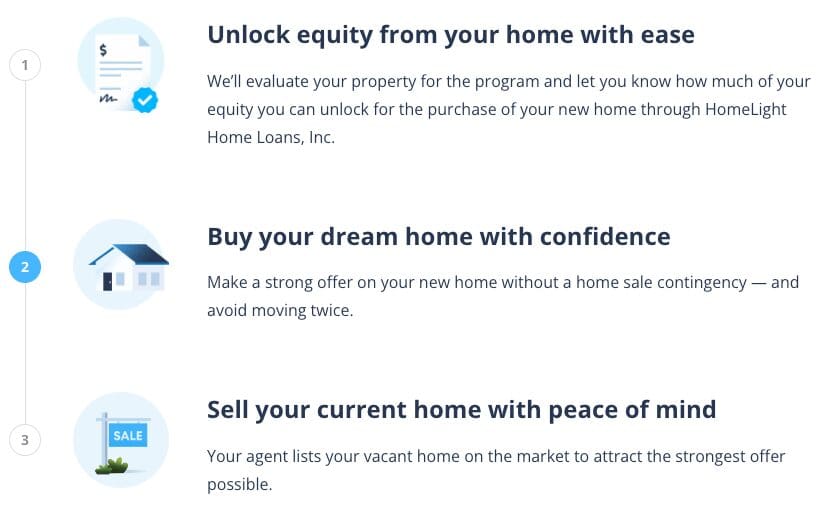Hard Money Lenders Greensboro: What to Know
- Published on
- 10 min read
-
 Joseph Gordon EditorClose
Joseph Gordon EditorClose Joseph Gordon Editor
Joseph Gordon EditorJoseph Gordon is an Editor with HomeLight. He has several years of experience reporting on the commercial real estate and insurance industries.
If you’re a Greensboro homeowner or investor looking for quick and flexible funding solutions, hard money loans could be your answer. These loans are often used by investors and flippers who need fast access to capital without the stringent requirements of traditional lenders.
Whether you’re planning to flip a house in Fisher Park or invest in a rental property in Lindley Park, understanding the ins and outs of hard money loans can help you make informed decisions. This guide will break down what hard money lenders are, how these loans work in Greensboro, and the potential uses and costs associated with them.
Editor’s note: This post is for educational purposes and is not intended to be construed as financial advice. HomeLight always encourages you to consult your own advisor.
What is a hard money lender?
A hard money lender provides short-term loans secured by real estate, primarily catering to house flippers and real estate investors. These lenders focus on the after-repair value (ARV) of the property, which is the estimated value after renovations. This valuation method allows borrowers to obtain funds quickly, even if they have less-than-perfect credit.
Hard money loans often have higher interest rates and fees than traditional loans. Interest rates typically range from 8% to 15%, and lenders may charge origination fees ranging from 1% to 5% of the loan amount.
Additional costs can include origination fees, closing costs, and points, which are a percentage of the loan amount paid upfront. As with any secured loan, failure to repay a hard money loan can result in the lender seizing the asset, such as a house, to recover their investment.
How does a hard money loan work?
Hard money loans in Greensboro provide a flexible financing option for various real estate ventures. Here’s how they typically work:
- Short-term loan: These loans are designed for short durations, usually between 6 months to 3 years, unlike the typical 30-year mortgage.
- Faster funding option: Hard money loans can be funded within days, providing quick access to capital.
- Less focus on creditworthiness: Lenders prioritize the property’s value over the borrower’s credit score, making these loans accessible even to those with lower credit scores.
- More focus on property value: The loan amount is based on the loan-to-value ratio of the property, considering its current and potential value after repairs.
- Not traditional lenders: Hard money lenders are private individuals or companies, not banks or credit unions.
- Loan denial option: Lenders can deny a loan if the property’s potential doesn’t meet their criteria or if they perceive high risk.
- Higher interest rates: Borrowers should expect to pay higher interest rates, typically between 8% to 15%, due to the increased risk for lenders.
- Might require larger down payments: Down payments are usually higher, often ranging from 20% to 30% of the property value.
- More flexibility: Terms and conditions can be more flexible,and tailored to individual projects.
- Potential for interest-only payments: Some lenders offer interest-only payments during the loan term, with the principal due at the end.
What are hard money loans used for?
Hard money loans are versatile tools for various real estate endeavors. Here are some common uses:
- Flipping a house: These loans provide quick funds for purchasing and renovating homes to sell at a profit.
- Buying an investment rental property: Investors can use hard money loans to acquire rental properties, leveraging the property’s future income potential.
- Purchasing commercial real estate: Businesses and investors can secure financing for commercial property purchases when traditional loans are not feasible.
- Borrowers who can’t qualify for traditional loans: Individuals with low credit scores or unconventional income sources can still access funds through hard money loans.
- Homeowners facing foreclosure: Homeowners can use these loans to pay off existing debts and avoid a pre-foreclosure property sale, leveraging their property’s equity.
How much do hard money loans cost?
Hard money loans generally cost more than traditional loans due to the higher risk for lenders and the convenience of quick, flexible funding. Typical costs include:
- Interest rates: 8% to 15% or higher, based on risk assessment.
- Origination fees: 1% to 5% of the loan amount.
- Closing costs: Legal, appraisal, and administrative fees.
- Points: A percentage of the loan amount charged upfront.
Online calculators can help estimate these costs.
Alternatives to working with hard money lenders
If you need quick financing and a hard money loan isn’t right for you, here are a few alternatives to consider:
- Take out a second mortgage: If you have substantial equity in your home, a home equity loan or home equity line of credit (HELOC) can provide the needed funds at a lower interest rate compared to a hard money loan.
- Cash-out refinance: This option allows you to refinance an existing property, pulling out cash to finance your new investment. It often comes with lower interest rates than hard money loans.
- Borrow from family or friends: A personal loan from family or friends can offer flexible repayment terms and potentially lower or no interest rates, making it a more affordable option.
- Use a government-backed loan program: Programs offered by the FHA, VA, or USDA can assist in purchasing homes with lower down payments and reduced interest rates.
- Peer-to-peer loan: These loans are provided by individual investors through lending platforms like Funding Circle. They function similarly to hard money loans but often have different terms.
- Specialized loan programs: If you already have a hard money loan and want to replace it, consider specialized loans for fixer-uppers or investment property refinancing.
- Request a seller financing option: In some cases, sellers may agree to finance the purchase themselves, which can result in lower closing costs and less stringent eligibility requirements.
How to buy before you sell
HomeLight’s Buy Before You Sell program offers homeowners the ability to buy a new home before selling your current one. This program lets you confidently purchase a new home, knowing you can move in immediately without the pressure of selling your existing home first. HomeLight provides the funds needed for the down payment on your new home, and you repay these funds once your old house is sold.
The Buy Before You Sell (BBYS) program allows you to leverage the equity in your existing home to make a stronger, non-contingent offer on a new property. If your home qualifies, you can get your equity unlock amount approved in 24 hours or less, with no cost or commitment required. Once approved, you can confidently purchase your next home and then sell your current one vacant, avoiding the hassle of moving twice.
Here’s how HomeLight Buy Before You Sell works:

Although there’s a flat fee of 2.4% of your current home’s sold price, the potential savings you could see in other areas might outweigh the cost. For example, you might save on moving expenses, temporary housing, and even the final purchase price of your new home. On top of that, HomeLight’s BBYS fees are typically much lower than the interest rates on bridge loans, which currently range from 9.5% to 12%.
3 top hard money lenders in Greensboro
Traditional lenders might not be the solution for every real estate investment. If you’re looking to move quickly and capitalize on an opportunity, explore the hard money lending options available in Greensboro.
Loan Mountain Capital
Loan Mountain Capital, based in Charlotte, NC, was founded by builders and real estate investors. They offer hard money loan programs tailored for builders and real estate investors. Their loans can close as quickly as 24 hours, ensuring funds are ready at closing and draw payments are made on time to keep projects on track.
Lending clientele: Real estate investors and builders
Loan criteria: Private loans from $50K-$1.5M
Loan Mountain Capital, based in Charlotte, NC, has a Google rating of 5.0 based on more than 20 reviews. Customers highlight their speed, customer service, and professionalism.
704-315-5084
Straightline Funding
Straightline Funding, based in Charlotte, NC, was founded in 2006. They offer a variety of loan programs for real estate investors, including rehab loans, transactional funding, bridge loans, new construction loans, and DSCR rental loans. Straightline Funding provides reliable lending solutions with terms ranging from 12 to 18 months.
Lending clientele: Real estate investors
Loan criteria: Up to 75% of ARV
Straightline Funding has a Google rating of 4.6. Customers highlight their professionalism, communication, and expertise.
888-309-1972
Carolina Capital Management
Based in the Charlotte metropolitan area, Carolina Capital Management serves real estate investors and small builders in North Carolina, South Carolina, Georgia, Virginia, Tennessee, Florida, and Texas. They provide hard money rehab loans, ground-up construction loans, and long-term financing for residential and commercial properties. Carolina Capital Management also offers consulting services, helping investors network and structure transactions. Once approved, loans can close in as little as 10 days.
Lending clientele: Residential and commercial real estate investors and developers
Loan criteria: Up to 70% ARV (fix-and-flip), up to 70% ARV (commercial), up to 85% LTC (new construction), up to 75% LTV (long-term)
Carolina Capital Management has a 5-star Google rating based on a limited number of reviews and is accredited by the Better Business Bureau (BBB) with an A+ rating. Customers praise their service, quick responses, and easy and efficient lending process.
803-831-2262
Should I partner with a hard money lender in Greensboro?
Choosing to partner with a hard money lender in Greensboro can be a smart move, depending on your specific financial goals and project requirements.
Hard money loans are particularly beneficial for real estate investors, house flippers, and those who need quick access to funds for short-term projects. While these loans offer flexibility and rapid funding, they also come with higher costs and shorter repayment periods.
For homeowners in Greensboro seeking to leverage their equity without the higher costs of hard money loans, HomeLight’s Buy Before You Sell program is an excellent alternative.
This program allows you to secure your new home first and then sell your existing one, ensuring a smooth transition without the stress of simultaneous transactions. Let HomeLight serve as your partner and guide through your next real estate transaction.
Header Image Source: (sepavone/DepositPhotos)




